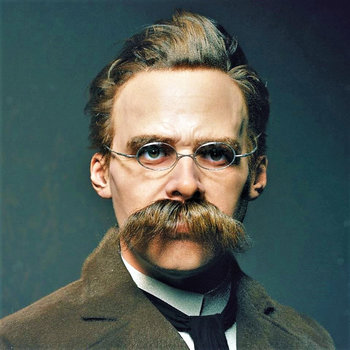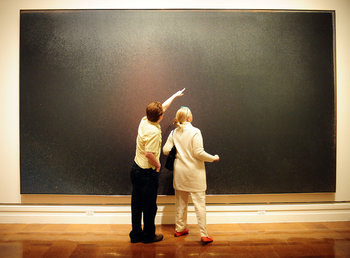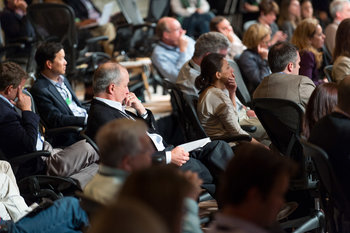
Mind–body Dualism
Mind-body dualism is a school of philosophy that views the mind as having intangible elements that don't map to the physical body. Historically, this is an extremely prevalent view that is supported by thousands of years of philosophy including the likes of Plato. The most influential modern theory of mind-body dualism are those of Rene Descartes that state that intelligence stems from the brain but that consciousness itself is intangible.Materialism
Materialism is the view that everything is physical such that intangible things are essentially not real. This is supported by Gilbert Ryle's criticism of mind-body dualism in which he suggests it is a simple misinterpretation of linguistic categories that has become a myth. Materialism has a tendency to view intangible elements of the human experience such as intuition, emotion, aesthetics, institutions, norms and culture as illogical and distracting. In other words, materialists have a tendency to support cold logic whereby anything that can't be physically measured is low value or illusionary.Idealism
Idealism is the theory that it is ideas that construct reality and not the other way around. This essentially the opposite of materialism. For example, idealists would point out that fiction can greatly influence the future as it can inspire future change such as inventions. Idealists place high value on all things intangible such as ideas, leadership, design, invention, aesthetics, relationships, reputation, creativity, imagination, storytelling, emotion, intuition, personality, experience, institutions, culture and symbols. Far from being isolated dreamers, they essentially run the economic systems of developed nations.Reductionism
Reductionism is the philosophy that complex systems can be explained by their parts. This is often summarized as the notion that "things are the sum of their parts." In the 19th century, scientists believed that complex intangible things such as consciousness could be explained by analyzing the physical parts involved. This notion is laughable from the perspective of modern science such as quantum mechanics where it has become clear that at its lowest levels the universe is inherently chaotic and probabilistic.Chaos Theory
Chaos theory is an emerging branch of mathematics that attempts to model the realities of complex systems whereby a single small part can have a large influence on the whole. For example, a human can have a single intangible experience that completely transforms their personality, behavior and thought patterns such that modeling a human mind as a collection of physical parts is infeasible.Holism
Holism is the theory that things are different from the sum of their parts. For example, a great institution such as the Louvre in Paris couldn't be understood by dismantling it to look at its bricks and pipes. Its value is intangible and linked to things such as history, culture, art, reputation and storytelling. As such, materialist reductionism is unhelpful in understanding it.Popular Culture
In science fiction, ghost in the machine comes up in relation to artificial intelligence, particularly the idea that machines spontaneously become sentient beings with characteristics of consciousness such as intentionality.
The Chinese Room
The Chinese room is an analogy that suggests that artificial intelligence can't have consciousness. It involves a person who can't speak Chinese in a room with a book that lists the appropriate response to any possible message and conversational context in Mandarin. The person engages in conversation by looking up the answers in a book without any understanding of what the conversation is about. This could be likened to an artificial intelligence that uses probability models to simulate natural conversation without understanding it at a conscious level.Primitive Mind
Confusingly, the term ghost in the machine was prominently used by the well known 20th century writer Arthur Koestler to represent a totally different concept -- the idea that the human mind evolved advanced capabilities such as rational thought on top of a primitive mind that still greatly influences our behavior. This primitive mind is Koestler's ghost in the machine whereby irrational behavior can arise in human's from primitive instincts such as anger.| Overview: Ghost In The Machine | ||
Type | ||
Definition (1) | The theory that consciousness is non-physical such that the mind is something more than the physical brain. | |
Definition (2) | A derisive term for the theory of mind-body dualism. | |
Definition (3) | The theory that the advanced capabilities of the human mind, such as rational thought, are built on top of a more primitive mind that still greatly influences thinking and behavior. | |
Term Coined By | Gilbert Ryle's The Concept of Mind (1949) as a criticism of Mind–body Dualism. | |
Related Concepts | ||



































